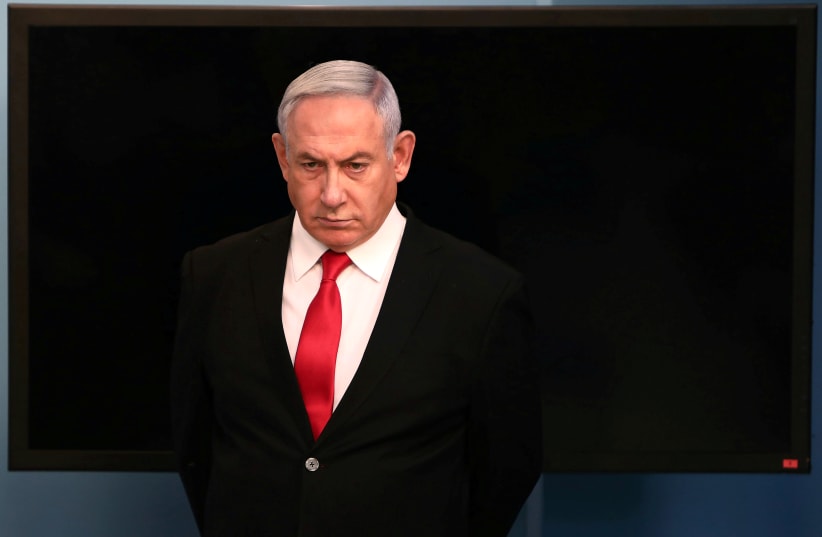“The protests are being fueled especially by the media, who have enlisted themselves [to the protests] in a manner the likes of which I cannot remember,” Netanyahu said.“I reject the one-sided attitude of the majority of the media,” he said. “They are not reporting on the protests but are participating in them and fueling them. This is not just media that has got onboard [with the protests]; it is enlisting people to the protests.”“They are fueling the protests, which are violent, which no one is speaking out against,” Netanyahu said.He cited an incident in which a policeman was seriously injured during a protest and needed surgery, saying he had heard no condemnation and even that the policeman was at fault.“When there is wild incitement without restraint, including daily calls to murder the prime minister and his family, the media ignores it, and the politicians are silent,” Netanyahu said, adding that the situation would be very different if similar calls were made against the president.“There has never been such a distorted mobilization [of the media],” he said. “I would have said Soviet [media mobilization], but its already North Korean in manner.”Opposition leader Yair Lapid (Yesh Atid) condemned Netanyahu’s comments and rejected his claim that the government was accommodating in its approach to the protests.“Protests are the foundational right of citizens in a democracy,” he said. “You failed in managing the [coronavirus] crisis. You failed in dealing with the unemployed and self-employed because you were dealing with your tax benefits and your criminal cases.”“You are cut off from the public and have lost their trust,” Lapid said. “The only way of stopping these protests is for you to resign.”Meretz faction chairwoman MK Tamar Zandberg said Netanyahu was “marching in the direction of dark regimes” with his comments.“The prime minister does not miss an opportunity to incite against Israeli democracy, against protesters and against the media,” she said. “Public protest is the lifeblood of democracy. Media that cover it is a basic condition of democracy. The prime minister who attacks these principles without pause or restraint wants to create a dangerous state here.”Likening Israeli media outlets to North Korean news organizations was the second time in 25 hours Netanyahu had made such comparisons.On Saturday night, he said reporting about the demonstrations by Channels 12 and 13 was like North Korean TV.“They are making a desperate effort to brainwash the public, with the goal of taking down a strong prime minister from the Right,” Netanyahu wrote on Facebook Saturday night.“They’re giving free and endless advertising from a number of broadcast points in an attempt to inflame the left-wing protests and as part of a transparent attempt to inflate their importance and weight,” he said.“The television in North Korea could learn from them, but the public is not buying it,” Netanyahu wrote.Later on Sunday at a press conference with Health Minister Yuli Edelstein and national coronavirus project manager Prof. Ronni Gamzu, Netanyahu made reference to the budget fight. He said a “short, immediate” budget should be passed now instead of the two-year budget demanded by Blue and White.The coalition agreement between Blue and White and Likud states that a two-year budget must be passed. But Netanyahu is insisting on passing a one-year budget. That would enable him to break apart the government at the end of March 2021, without handing over the premiership to Gantz.“We need to pass a short, immediate state budget as quickly as possible to get money to the economy and get it moving,” Netanyahu said. “Then we can do [another] budget for the coming year.”“We surely cannot at the moment make commitments for a year and a half,” he said. “This is irresponsible. This is the decision, and that is the direction I am going in. There is no reason this should not happen. There is no reason to condition the approval of the budget on political grounds. I’m not the one doing it.”A budget until the end of 2020 is ready and could be approved by the government immediately if Blue and White agreed, Netanyahu said.Tzvi Joffre contributed to this report.
Netanyahu lashes out at media: Worse than North Korea
In a furious broadside attack, Prime Minister Netanyahu accuses Israeli news outlets of ‘fueling’ protests in an effort to ‘trample on democracy.’
